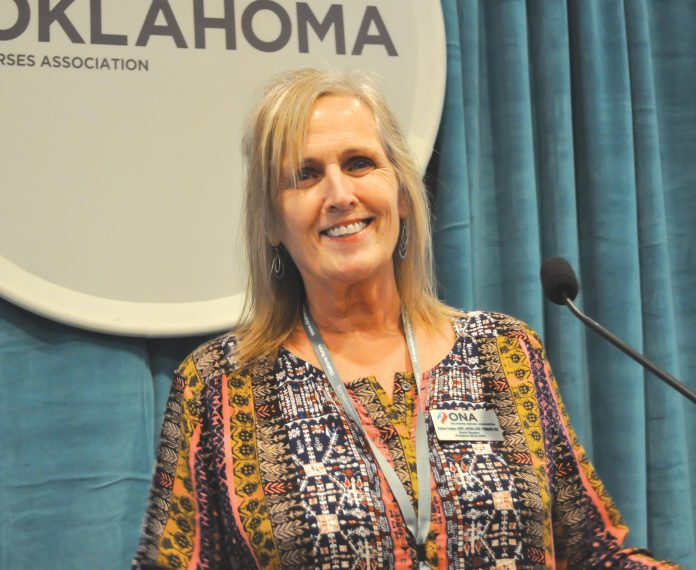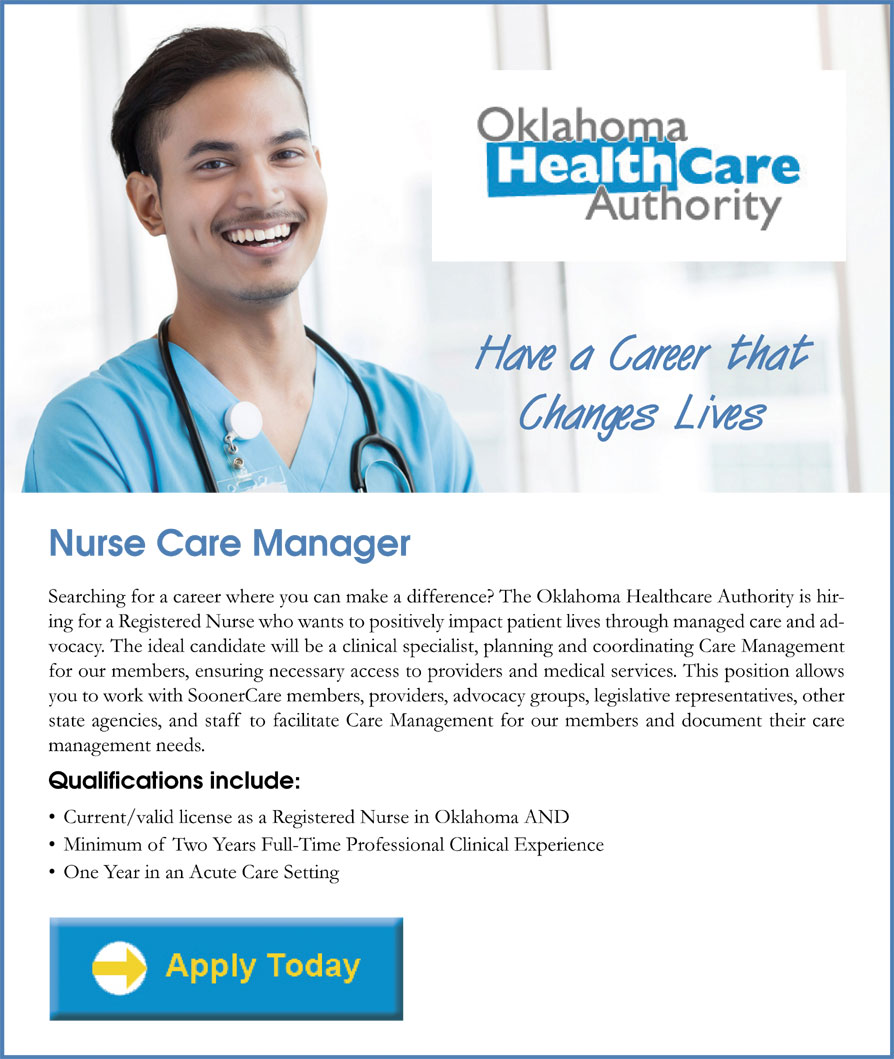
by Bobby Anderson, RN, Staff Writer
Karen Taylor, Oklahoma Nurses Association President, worked in psychiatric nursing for a number of years.
The fear of an unstable patient becoming aggressive was always a real possibility every time she set foot on the unit.
But the increasing threat of violence in many more nursing environments has the president of the Oklahoma Nurses Association on edge.
“It’s kind of disheartening that we have to listen to this and learn how to protect ourselves when we go into work,” Taylor said. “We go to work to care for people and nurture them but we have to be there in fight or flight mode nowadays.”
Taylor was speaking at the annual ONA Convention, held in Tulsa recently. This year’s convention – Empowering Nurses: Inspire, Innovate, Influence – focused, in part, on violence in the workplace and offered nurses solutions to help them better protect themselves.
According to the federal Occupational Safety and Health Administration, healthcare workers are at an increased risk for workplace violence.
From 2002 to 2013, incidents of serious workplace violence (those requiring days off for the injured worker to recuperate) were four times more common in healthcare than in private industry on average.
In 2013, the broad “healthcare and social assistance” sector had 7.8 cases of serious workplace violence per 10,000 full-time employees. Other large sectors such as construction, manufacturing, and retail all had fewer than two cases per 10,000 full-time employees.
Speaker after speaker – from emergency room to women’s health clinic settings – shared their experiences with violence in the workplace during the ONA’s annual event.
Speakers from law enforcement and hospital security were also invited to share their perspectives and advice to the nursing profession.
“It’s very near and dear to my heart. It’s always been in my field,” Taylor said of the issue of violence in nursing.“I believe nurses are starting to speak out about it and they don’t want to be treated this way and that’s not what they’re here for.”
The ONA’s House of Delegates passing a workplace violence resolution that read, in part: “that the Oklahoma Nurses Association will no longer tolerate violence of any kind from any source. Nurses must be afforded the same level of respect and dignity as others … and nurses must make a commitment to and accept responsibility for establishing and promoting healthy interpersonal relationships with one another and with all members of the healthcare team.”
Workplace violence consists of physically and psychologically damaging actions that occur in the workplace or while on duty, according to the National Institute for Occupational Safety and Health.
The Bureau of Labor Statistics releases an annual report about injuries and illnesses resulting in time away from work in the United States. In the health care and social assistance sectors, 13% of days away from work were the result of violence in 2013, and this rate has increased in recent years.
Examples of workplace violence included direct physical assaults (with or without weapons), written or verbal threats, physical or verbal harassment, and homicide.
The profession has always been one where nurses feel enduring a certain amount of violences is just part of the job.
“Part of it is perhaps (nurses) don’t know where the line is,” Taylor said. “Part of it is they don’t know their rights basically in situations like that. They probably need more education coming out of nursing school.
“I know when I was teaching I had nurses who told me they didn’t know about mental health because they were going to work in a medical hospital.
“Where do you think our patients go when they are ill?”
The two-day event also afforded nurses the opportunity to network and discuss evidence-based practice happening at their respective facilities.
“Seeing what nurses are doing,” Taylor said of her favorite part of the annual event. “I come from a rural area and I know there are a lot of publications by nurses but I don’t have time to read everything. And some of the publications I read are not from people I know so knowing people from Oklahoma, what they’re doing, the change they’re making, the voice they have in Oklahoma is great.”

Have a Career that Changes Lives
Nurse Care Manager
Searching for a career where you can make a difference?
The Oklahoma Healthcare Authority is hiring for a Registered Nurse who wants to positively impact patient lives through managed care and advocacy.
The ideal candidate will be a clinical specialist, planning and coordinating Care Management for our members, ensuring necessary access to providers and medical services.
This position allows you to work with SoonerCare members, providers, advocacy groups, legislative representatives, other state agencies, and
staff to facilitate Care Management for our members and document their care management needs.
Qualifications include:
• Current/valid license as a Registered Nurse in Oklahoma AND
• Minimum of Two Years Full-Time Professional Clinical Experience
• One Year in an Acute Care Setting
APPLY TODAY!












